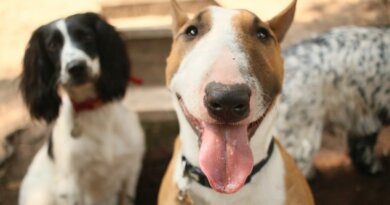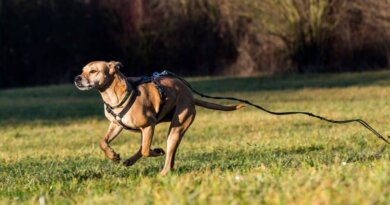Is Hand-Feeding Your Dog a Good Idea?
Many trainers feed very little of their dogs’ daily ration from a bowl, but instead, hand-feed the dog’s meals to him over the course of the day. Every interaction with a dog is an opportunity for training. Setting aside a portion (or all!) of your dog’s morning and evening meals and delivering that food by hand throughout the day as your dog complies with requests, along with catching your dog in the act of being good, helps drive up your rate of reinforcement and builds value for the behaviors you’d like to see more often. Hand-feeding is also a great way to help a puppy consistently practice basic skills (such as sit, down, wait, come, etc.) and overall polite behavior.
In addition, for dogs who are generally confident but who have many interests, of which you are just one – in other words, dogs who are easily distracted – hand-feeding for a period can help increase the dog’s attention to you as the handler by associating you with meals and feeding.
Hand-feeding can help establish a relationship between you and a new dog, or your dog and a new person in your life..
When is hand-feeding not a good idea?
While hand-feeding can be used to help establish a relationship with a dog, when used with particularly shy and fearful dogs, it can cause additional stress. Similarly, some people will try to use food or treats to build a fearful dog’s comfort with strangers. The hope is that the dog will associate the presence of the “scary person” (“Yikes!”) with the presence of the food (“Yum!”), but what often happens (especially with dogs who really like food), is that the allure of the food temporarily overrides their unease about the person – but only for as long as it takes to grab the food. Once the food is in their mouth, they instantly realize the “scary person” is too close for comfort. In this case, the food is more of a trap than a tool to help change the dog’s association.
A better approach in the case of the “strangers are scary” problem is for the owner to deliver food in the presence of the “scary person” while the person is noticeable, but far enough away so as not cause significant concern. Take a similar approach if you are trying to use food to bond with a highly fearful dog, by being close enough to him that he associates your presence with the food, but not so close that it takes a major act of courage (or desperation) to eat it.
What to watch for when hand-feeding a dog
Hand-feeding can increase some dogs’ lack of self-control around food. Many dogs are overly excited by food and may jump up or lunge at their owner’s hands as they attempt to get the food. To help teach impulse control in this situation, ask your dog to sit and hold a piece of low-value food in your open palm. Attempt to move your palm closer to your dog. If he moves toward the food, close your fist and, if needed, ask him to sit again. As your dog can control himself as your food hand gets closer, use your opposite hand to deliver food to his mouth and invite him to “take it!”
“Self-control” will look different for different dogs. For especially excitable dogs, self-control might initially mean she holds a sit for two seconds while your open hand is 12 inches above her head. If your dog tends to jump on you when you have food, use a leash to tether her to a sturdy object and stand just beyond the length of the leash. With consistency, your dog will learn the fastest way to get the food is to exercise patience around the food.
If your dog bites down too hard when taking food from your hand, try these tips.
What about dogs who only eat when hand-fed?
In some cases, a dog will get used to being fed by hand and might balk at eating from a bowl. In such cases, a little “tough love” might be in order. Present your dog’s meal in a bowl and give him five minutes to eat. If he doesn’t, pick up the bowl and try again later. A healthy dog won’t starve himself when food is available, even if this technique means he skips a few meals while he waits to see if you’ll revert to feeding by hand.




